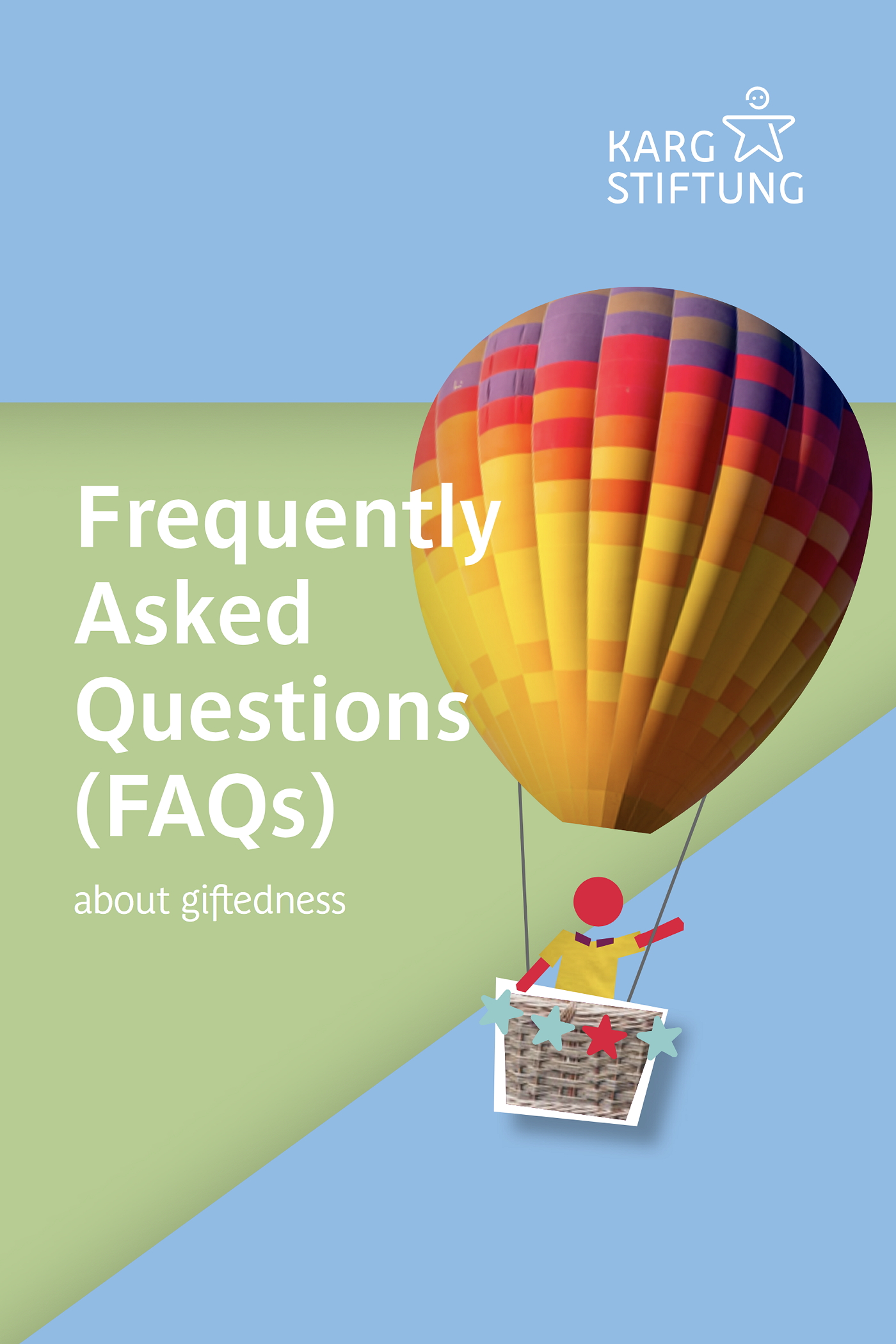Frequently Asked Questions (FAQs) about giftedness
How can support be provided at the Kita?
Early life experiences and learning are especially important. Children never learn as easily and quickly as they do in the early years. This insight has also led to a steady increase in the importance of the Kita as an educational institution in recent years.
In many cases, gifted children develop particularly intense learning demands at an early age, some of which they assert persistently while still in the Kita setting. Thus, Kitas are important places of support for gifted children, where they can experience a variety of learning opportunities that provide an important basis for the further development of their individual abilities and talents. Compared to schools, an advantage of Kitas is that they are very flexible when it comes to the composition of (small) groups and in choosing and structuring topics for children. Based on their experience and their knowledge of many different children, Kita educators can often easily recognize when children exhibit interests and abilities that are unusual for their age—and they can offer these children targeted stimulation and support. Providing group spaces with ample resources, including materials that may not be considered “age appropriate” (e.g., books for beginning readers, microscopes for children, more challenging board games) can support gifted development. Because of the mixture of ages in Kita groups, the younger children can be particularly supported by including them early on in activities for older children, for example, in activities and programs intended for preschool children.
An in-depth look at the topic of “support in the Kita” is provided in the Karg Foundation’s special edition “Frequently Asked Questions (FAQs) about giftedness in early childhood”.

